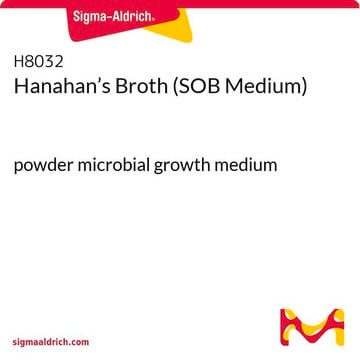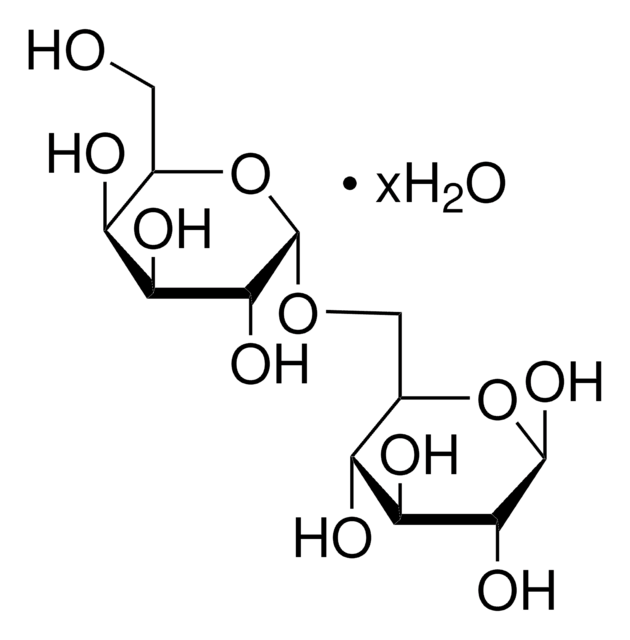S0625
D-(−)-Salicin
≥99% (GC)
Synonym(s):
2-(Hydroxymethyl)phenyl-β-D-glucopyranoside, Salicoside, Salicyl alcohol glucoside, Saligenin β-D-glucoside
About This Item
Recommended Products
Quality Level
Assay
≥99% (GC)
form
powder
application(s)
metabolomics
vitamins, nutraceuticals, and natural products
SMILES string
OC[C@H]1O[C@@H](Oc2ccccc2CO)[C@H](O)[C@@H](O)[C@@H]1O
InChI
1S/C13H18O7/c14-5-7-3-1-2-4-8(7)19-13-12(18)11(17)10(16)9(6-15)20-13/h1-4,9-18H,5-6H2/t9-,10-,11+,12-,13-/m1/s1
InChI key
NGFMICBWJRZIBI-UJPOAAIJSA-N
Looking for similar products? Visit Product Comparison Guide
General description
Application
- to study its in vitro anticoagulant and antiplatelet activities
- as a standard in high performance liquid chromatography method (HPLC) for quantitation of salicin from willow plant
- as a tastant in taste threshold assay
- as a constituent of nutrient agar-salicin medium for selective isolation of Lactobacillus paracasei
Biochem/physiol Actions
Signal Word
Warning
Hazard Statements
Precautionary Statements
Hazard Classifications
Skin Sens. 1
Storage Class Code
11 - Combustible Solids
WGK
WGK 3
Flash Point(F)
Not applicable
Flash Point(C)
Not applicable
Personal Protective Equipment
Certificates of Analysis (COA)
Search for Certificates of Analysis (COA) by entering the products Lot/Batch Number. Lot and Batch Numbers can be found on a product’s label following the words ‘Lot’ or ‘Batch’.
Already Own This Product?
Find documentation for the products that you have recently purchased in the Document Library.
Customers Also Viewed
Our team of scientists has experience in all areas of research including Life Science, Material Science, Chemical Synthesis, Chromatography, Analytical and many others.
Contact Technical Service








